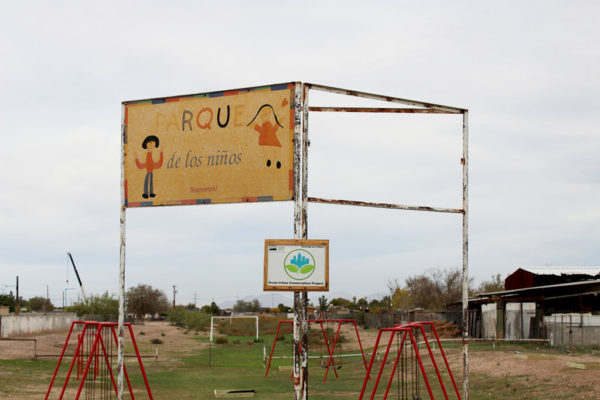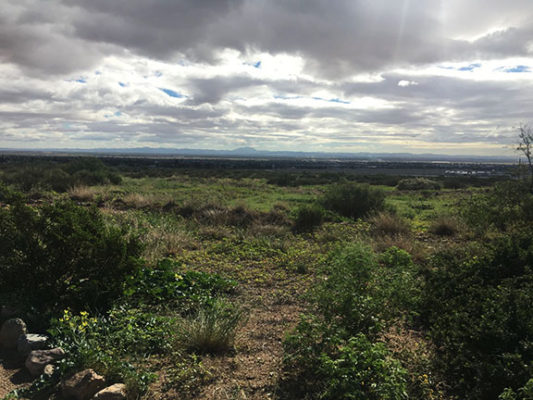Bees lead researchers to trailblazing ecological partnership with Texas city
|
SAN ELIZARIO, Texas – What started as a project by Auburn University to study ways to protect a unique ecosystem of bees in the Chihuahuan Desert has lead to a series of pioneering environmental renovation projects for this historic frontier city on the eastern edge of El Paso County. While fewer than 10,000 people live in San Elizario, the area is special to researchers because it is home to one of the largest diversities of bee species and bee pollinated plants in North America. Auburn University researchers began working with the City of San Elizario in studying the bees in 2017. They soon realized there was more going on that deserved further study. “We were very much bee-centric and now we actually think much more in terms of the ecological interactions between plants and insects.

